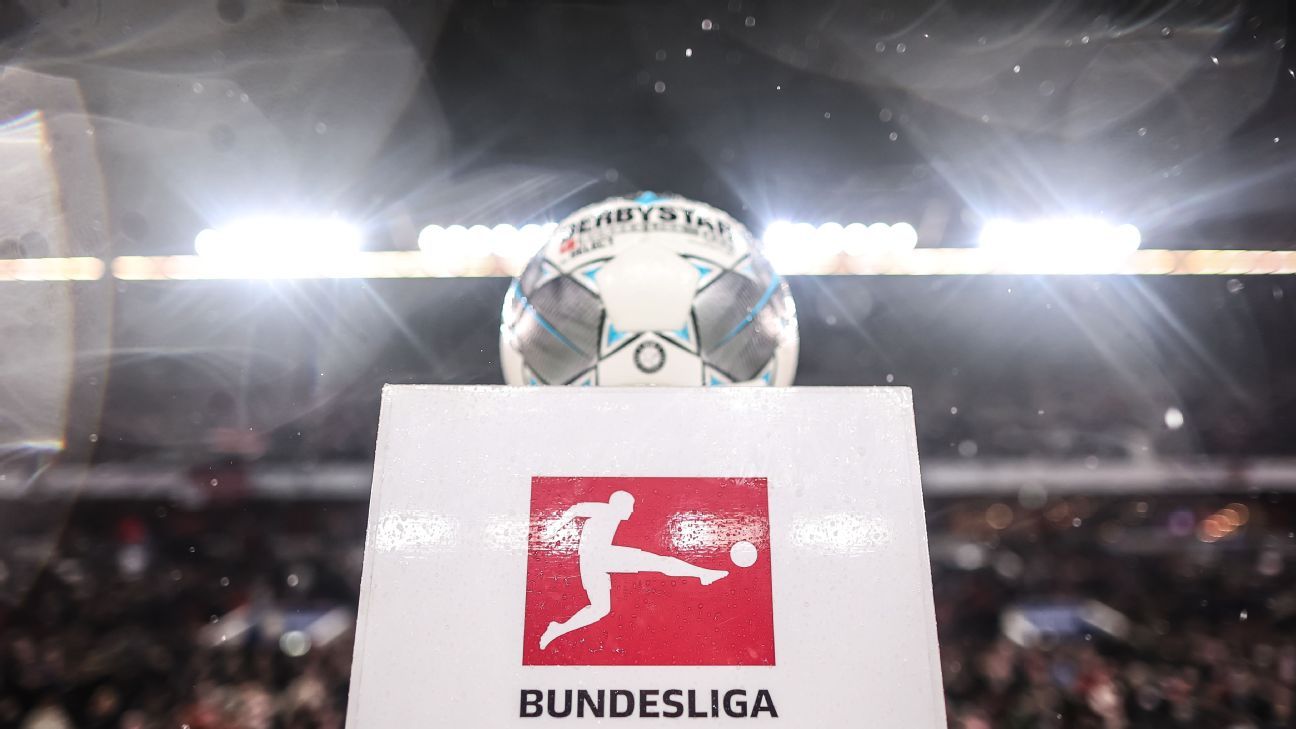
One of the most powerful politicians in Germany has warned that the Bundesliga is danger of being called off following several highly publicised violations of the league's medical policy ahead of Saturday's restart of the season, which will come without spectators in the stadiums.
The Bundesliga's return from the shutdown forced by the coronavirus pandemic has been anticipated by sports fans around the globe. However, some influential voices have questioned the comeback of football in the country.
"If health experts have made those suggestions, if the league with great expense and smart ideas has worked on concepts, you have to stick those rules," Bavarian minister president Markus Soder told Bild on Friday.
- Stream new episodes of ESPN FC Monday-Friday on ESPN+
- Stream every episode of 30 for 30: Soccer Stories on ESPN+
- Where Europe's top leagues stand on finishing 2019-20 season
"And if you do not stick to those rules, you might get the red card. It's like that in football as well as in real life."
Soder's comments came after Augsburg coach Heiko Herrlich told a virtual news conference on Thursday that he broke a mandatory seven-day training camp quarantine for players and staff before the league resumes to shop for toothpaste and skin cream at a nearby supermarket. He later ruled himself out of Saturday's game versus Wolfsburg. It would have been his first in charge of the club.
Late on Friday, Bundesliga club Werder Bremen announced that one of their players had been placed under a two-week quarantine due to a positive test by somebody in his personal circle.
Earlier this week, Borussia Monchengladbach said they cut short their seven-day quarantine to just six days because their hotel opened only on Monday and the German Football League (DFL) rescheduled their game from Sunday to Saturday. Local health authorities said they had no objections.
Only days before the government's decision to restart the league, Hertha Berlin attacker Salomon Kalou broadcast a live stream showing social distancing measures being flouted at the capital club. The Ivory Coast striker was suspended by the club the same day.
To win the trust of the German government and the political decision-makers and to secure the health of the players and staff, the DFL has worked out a 51-page medical plan explaining in detail to key figures (players and staff) how to avoid infections.
That paper has been the basis of the government decision to allow the league to restart, but it remains unclear who can sanction violations of the plan. The Green Party, one of four opposition parties in the German parliament, this week asked the German government to clarify the matter. An answer is expected early next week.
The latest polls in Germany have shown a growing majority against the resumption of football. Fans have cited several reasons for their disapproval; some have accused those in charge of being out of touch with reality in bringing football back amid the pandemic.
Others have argued that the economic needs of the league, in which around half of the clubs feared they would not survive if the season had been canceled, do not offset the lack of atmosphere at matches played without fans.
"I don't want anything to do with it. I do not even take note of it. It is a construction only created to cash in TV money. It does not mean it does not hurt me. I suffer because I have to refuse my participation," actor Matthias Brandt, the son of former German chancellor Matthias Brandt, told Der Tagesspiegel, summing up the feelings of many football fans in the country.
The Bundesliga will restart regardless and must complete nine match days to finish the season. On Thursday, the DFL put off a decision on what will happen if play is suspended a second time or if the rest of the season is canceled.
Players and staff are tested regularly, and so far only a few have been reported to have tested positive for the coronavirus.
In Bundesliga 2, Dynamo Dresden's entire squad was put in quarantine for 14 days last Saturday after two players tested positive; it remains unclear when they will return.
"We will have to master several difficult situations. The big picture stands above everything," Frankfurt executive Fredi Bobic told Die Zeit when asked whether those quarantine situations could put the integrity of the competition in danger.
And Dortmund CEO Hans-Joachim Watzke told Spox: "We owe it to the discipline of the population that we are in a position like that in Germany. And to the politicians who have acted cautiously in this situation."















 Phone: (800) 737. 6040
Phone: (800) 737. 6040 Fax: (800) 825 5558
Fax: (800) 825 5558 Website:
Website:  Email:
Email: 






